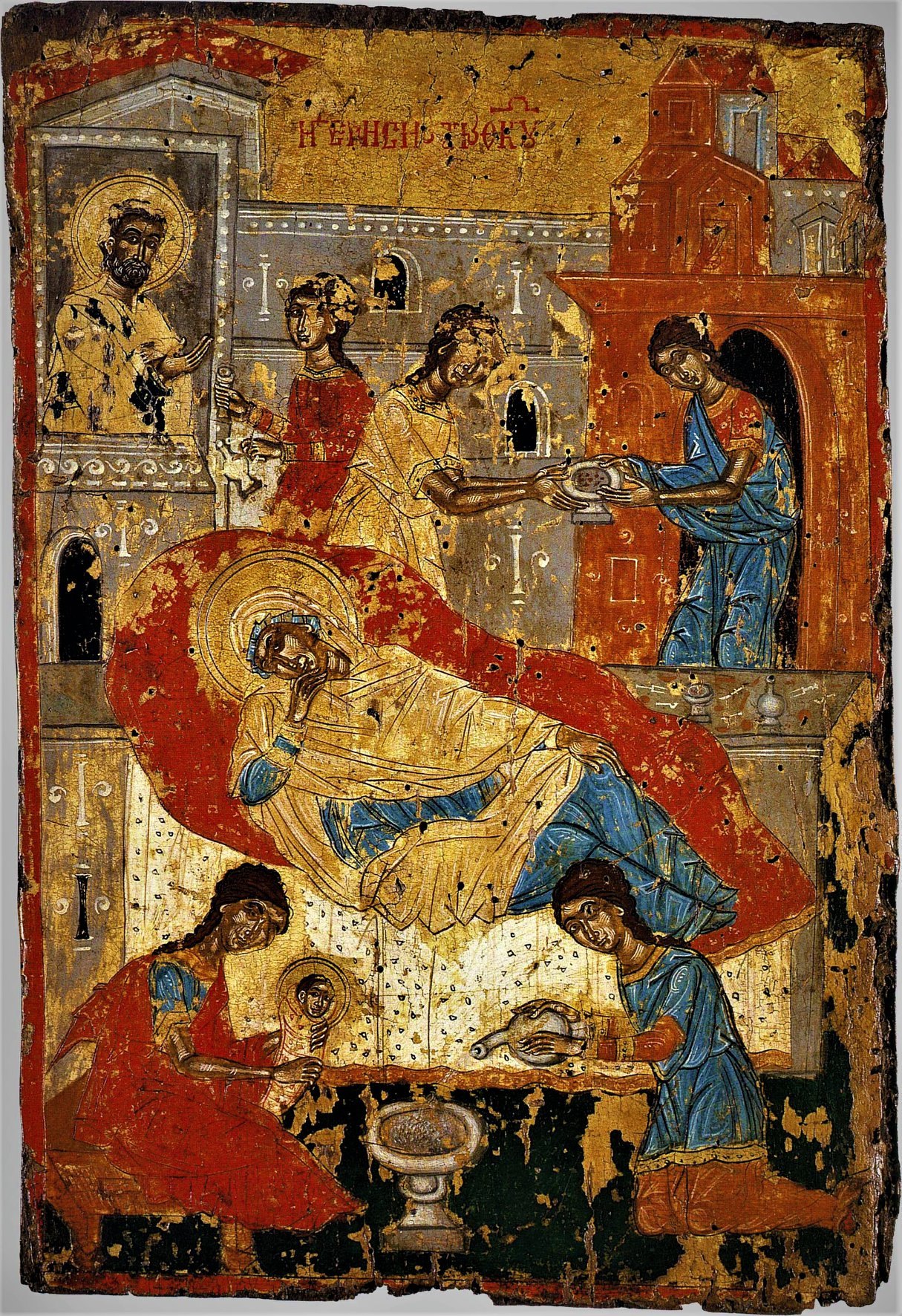 “By Your Nativity, O Most Pure Virgin, / Joachim and Anna are freed from the reproach/disgrace of barrenness (ὀνειδισμοῦ ἀτεκνίας); / Adam and Eve, from the corruption of death. / And we, your people, freed from subjection to sin (ἐνοχῆς τῶν πταισμάτων), celebrate and sing to you: / The barren woman gives birth to the Theotokos, the nourisher of our life!” (Byzantine Kontakion-hymn of the Nativity of the Theotokos)
“By Your Nativity, O Most Pure Virgin, / Joachim and Anna are freed from the reproach/disgrace of barrenness (ὀνειδισμοῦ ἀτεκνίας); / Adam and Eve, from the corruption of death. / And we, your people, freed from subjection to sin (ἐνοχῆς τῶν πταισμάτων), celebrate and sing to you: / The barren woman gives birth to the Theotokos, the nourisher of our life!” (Byzantine Kontakion-hymn of the Nativity of the Theotokos)
The services of the great feast of the Nativity of the Theotokos, celebrated this Sunday (NC), are full of difficult theological concepts, like “corruption of death” and “subjection to (liability for) sin,” referring to our human state before Christ. Even more perplexing, perhaps, is the mention of Christ annulling our “curse” in another well-known hymn of the feast: “By annulling the curse (καὶ λύσας τὴν κατάραν) He bestowed a blessing, by destroying death, He gave us eternal life,” it says in the Troparion-hymn. What does it all mean?
I am given to understand the meaning of these terms first and foremost through a story. It is the personal story of Saints Joachim and Anna, and their “disgrace of barrenness” or “childlessness.” And here’s what their story teaches me: Before God intervened and stepped into our picture, they, like me, were unable to “live” to their full potential. Without the Source of Life stepping into our nature, separated from Him through “sin” (a loss of focus), and a “curse” (a loss of “blessing” or “ev-logia,” a “good word”), we are cut off from His creative energies, which allow us to become truly productive and truly human. He becomes human, through His Most-Pure Mother, so that I can become my true self, freed from paralyzing “barrenness” and capable of giving birth to His word in my world.
So today “the barren woman gives birth,” as He bestows His same blessing on an ever God-Bearing Church. Let me embrace this blessing, by the intercessions of the Blessed Among Women, amen!
Meditation by Sr. Vassa
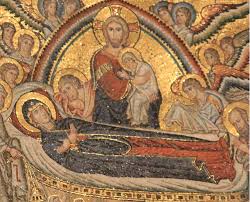 Since August 1, we have been preparing for the great feast of Mary, the Mother of God through prayer, fasting and almsgiving.
Since August 1, we have been preparing for the great feast of Mary, the Mother of God through prayer, fasting and almsgiving.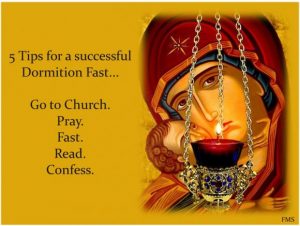
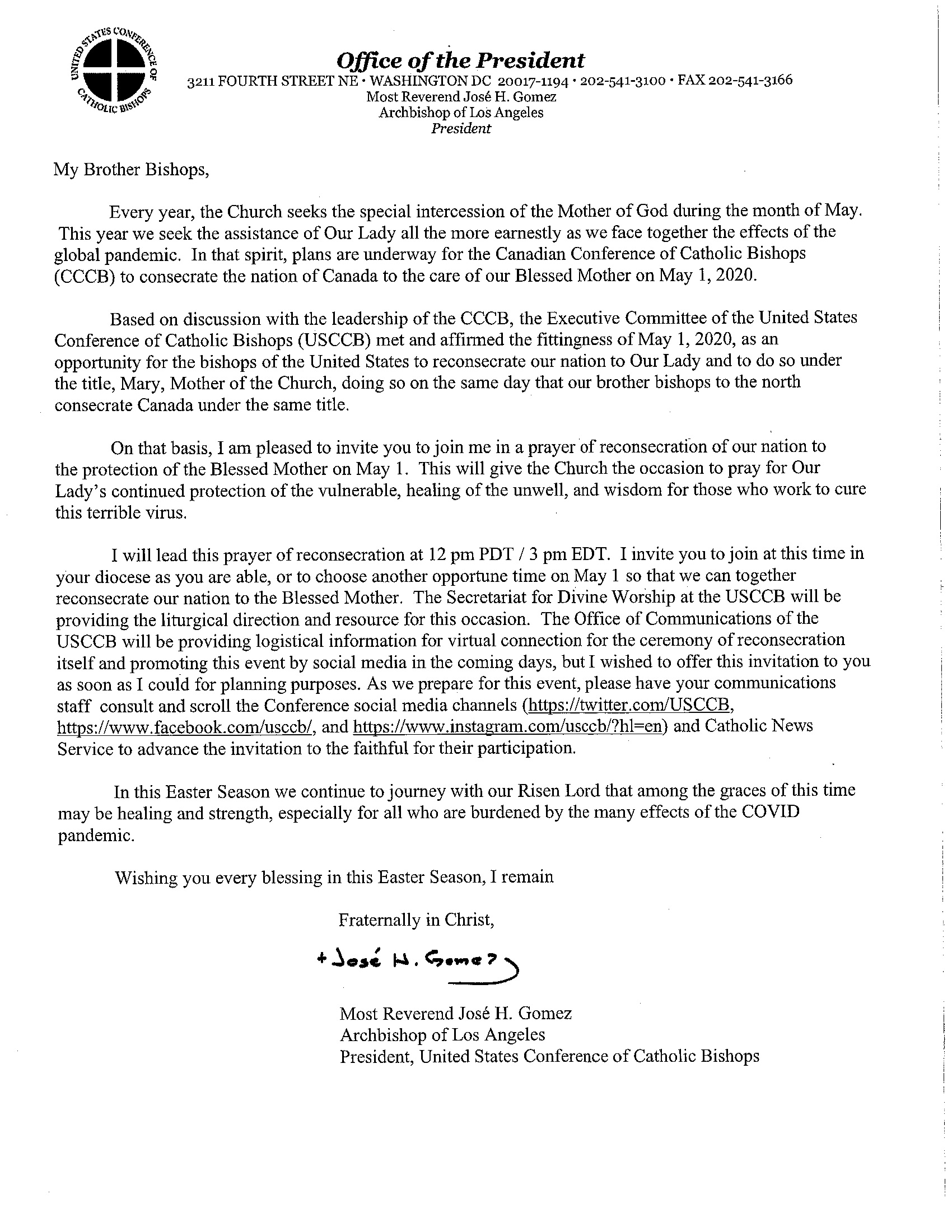 We would like to make you aware of the attached letter from Archbishop Jose Gomez, President of the USCCB, regarding the Re-Consecration of the United States to Our Lady, under the title of Mary, Mother of the Church, on 1 May, in union with the Bishops of Canada.
We would like to make you aware of the attached letter from Archbishop Jose Gomez, President of the USCCB, regarding the Re-Consecration of the United States to Our Lady, under the title of Mary, Mother of the Church, on 1 May, in union with the Bishops of Canada.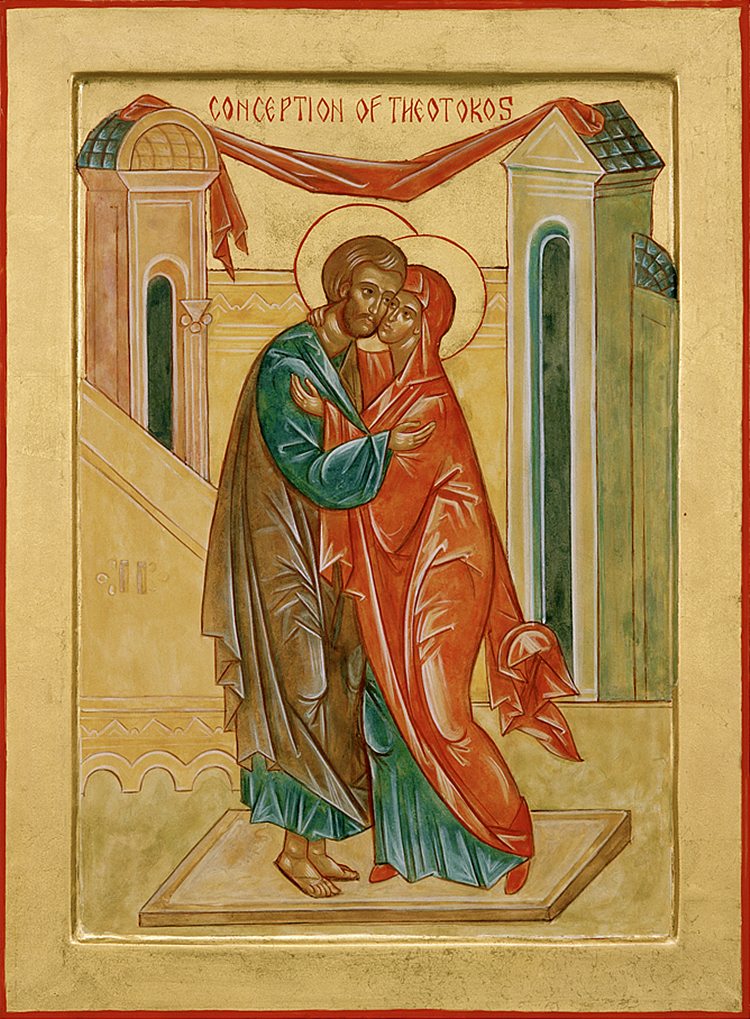 December 8 (December 9) THE MATERNITY OF THE HOLY ANNA
December 8 (December 9) THE MATERNITY OF THE HOLY ANNA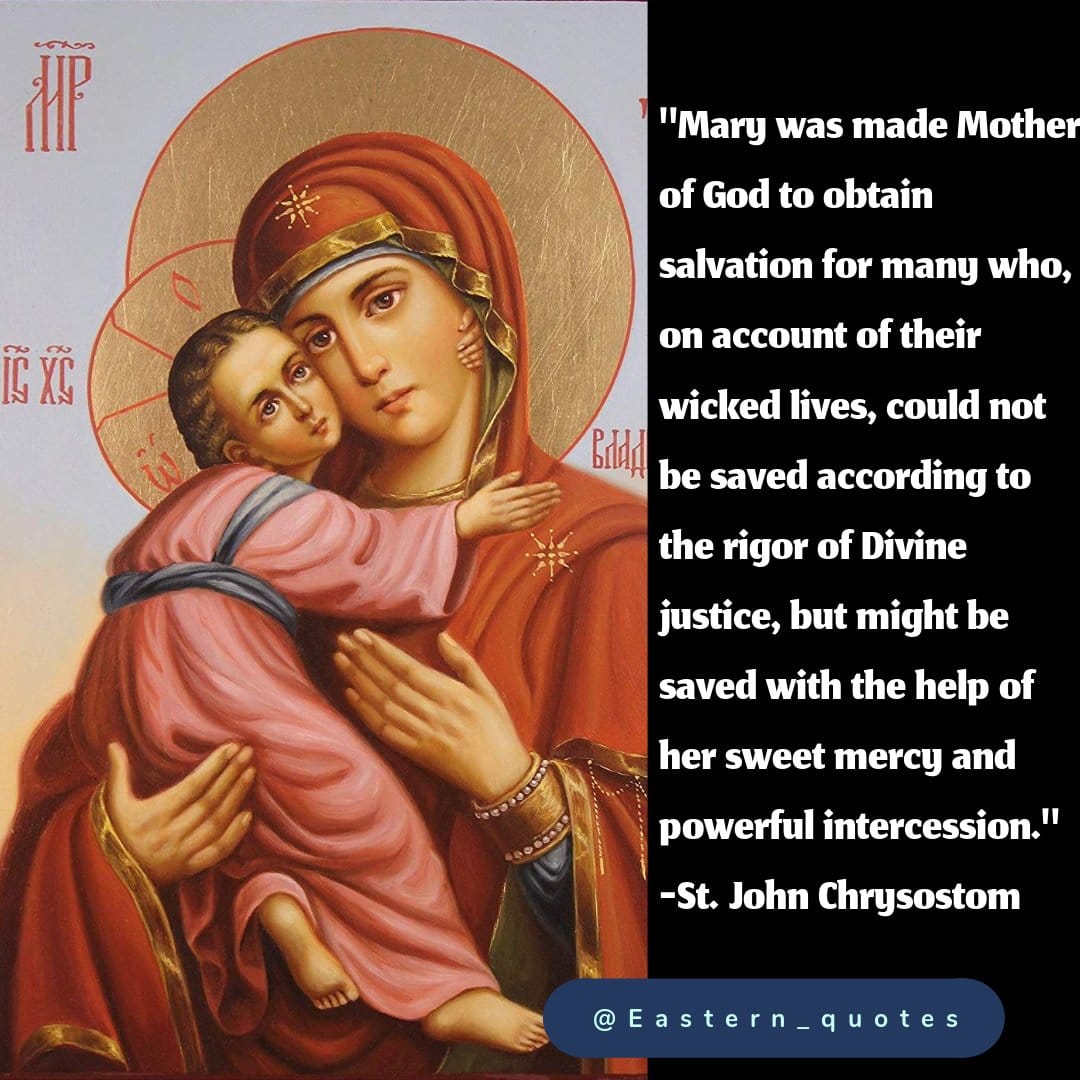 All the faithful come before you
All the faithful come before you “By Your Nativity, O Most Pure Virgin, / Joachim and Anna are freed from the reproach/disgrace of barrenness (ὀνειδισμοῦ ἀτεκνίας); / Adam and Eve, from the corruption of death. / And we, your people, freed from subjection to sin (ἐνοχῆς τῶν πταισμάτων), celebrate and sing to you: / The barren woman gives birth to the Theotokos, the nourisher of our life!” (Byzantine Kontakion-hymn of the Nativity of the Theotokos)
“By Your Nativity, O Most Pure Virgin, / Joachim and Anna are freed from the reproach/disgrace of barrenness (ὀνειδισμοῦ ἀτεκνίας); / Adam and Eve, from the corruption of death. / And we, your people, freed from subjection to sin (ἐνοχῆς τῶν πταισμάτων), celebrate and sing to you: / The barren woman gives birth to the Theotokos, the nourisher of our life!” (Byzantine Kontakion-hymn of the Nativity of the Theotokos)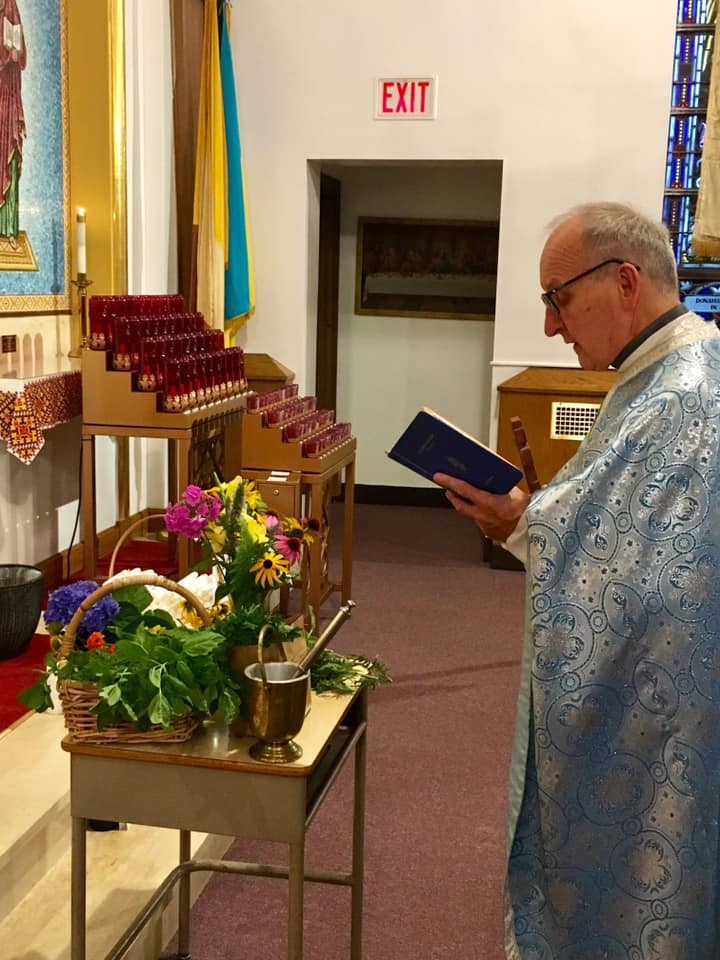 Father Paul Luniw served the Divine Liturgy and blessed flowers and herbs for the Dormition Feast. Father Stepan did similarly at the morning Liturgy.
Father Paul Luniw served the Divine Liturgy and blessed flowers and herbs for the Dormition Feast. Father Stepan did similarly at the morning Liturgy.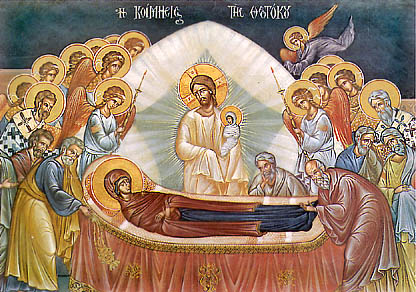 On Thursday, August 15, the Dormition of our most Holy Lady and the Mother of God and Ever-Virgin Mary, a holy of LOVE, the Divine Liturgy will be served at:
On Thursday, August 15, the Dormition of our most Holy Lady and the Mother of God and Ever-Virgin Mary, a holy of LOVE, the Divine Liturgy will be served at: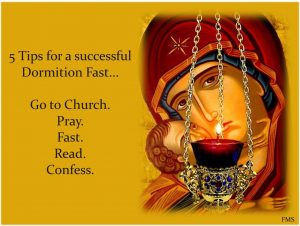 “Father,” someone once asked their priest, “I have a difficult time observing the Dormition Fast. What should I do?”
“Father,” someone once asked their priest, “I have a difficult time observing the Dormition Fast. What should I do?”